- Home
- Sharyn McCrumb
The Ballad of Frankie Silver Page 11
The Ballad of Frankie Silver Read online
Page 11
One of the vacationing firemen was waiting for him at the crossroads beside the church. When he recognized the patrol car, he stepped out of the shadows of an oak tree and flagged him down. Spencer parked in the church’s gravel lot and followed the young man down the road and through the field toward the dark woods beyond.
The fireman’s name was Al Hinshaw, and he said that his buddy Neil was waiting at the site with the ranger. He explained about their hiking vacation, and how they’d stumbled over the bodies on their way back to the shelter. Hell of a way to end your vacation, he’d said, shaking his head. The trail was supposed to be a peaceful place, wasn’t it?
“It usually is,” said Spencer. Now he saw the glow of a Coleman lantern, and he knew they were within hailing distance of the crime scene. He had met Willis Blaine a couple of times, when their paths had crossed in other investigations, but he couldn’t remember anything about the man that would be fodder for small talk during the long wait for the pros from Knoxville.How’s the wife and kids, Willis? Who knew if he even had any? Spencer wasn’t much good at small talk anyway, in those days. The demands of the job seemed to overshadow all the rituals of everyday life for him, leaving him without anything ordinary to say.
Blaine did not seem interested in conversation, either. He stood up and nodded a greeting when Spencer came into the clearing. Spencer shook hands with him and with the other fireman, Neil Echols, and that ended the civilities of the evening. “I didn’t touch anything,” the ranger told him. “It’s not my jurisdiction anyhow. But I’ll stay if you want me to.”
Spencer nodded. He could tell from Willis Blaine’s tone of voice that he wasn’t trying to take over the investigation. He was extending a courtesy to a fellow officer, and Spencer would have accepted the offer, realizing with some surprise that he really didn’t want to be all alone in the woods in this terrible place waiting for help to arrive, but Alton Banner had joined them by then, so he would have company. He wasn’t afraid; he decided that the proximity of death had made him realize how little time we all had in this world not to be alone. Instead of expressing these sentiments, he said: “You go on home. I’ll call you and let you know what we find out.”
Then he went to hold the light on the bodies while Alton Banner examined them.
“Well, they’re past my help,” the old doctor declared after a moment’s silence. “You don’t need me to tell you that.”
“No, sir. But your presence makes it official.”
Spencer had written the words “Crime Scene Log” at the top of the first page of the notebook. He would record the names of every person who went in and out of the area, so that if a question arose later about a fingerprint or a bit of fiber evidence, they could check the sample against those who had been present at the scene. He took the names and addresses of the two vacationing firemen and sent them on their way. It was just possible that they had been responsible for this crime, but Willis Blaine hadn’t thought so, and neither did Spencer. The two men had seemed genuinely upset by their discovery of the bodies, and they hadn’t shown the signs of uneasiness or cockiness he’d have expected from the perpetrators. They acted, as far as he could tell, normal, under circumstances that were far from normal.
“They were killed separately,” Alton Banner remarked when the hikers had gone.
Spencer blinked. “What?”
“The bodies. There’s a difference in body temperature that suggests one has been dead an hour longer than the other. The male victim went first. He was off in the weeds. The killer probably took him there for-what? Privacy? To get him out of the way without letting the girl know what had happened to him?” The doctor shrugged. “Figuring that out is your job, I guess.” He turned the flashlight toward the second body, letting the beam play on the ropes that still bound her wrists. “The girl was tied to the tree at that point.”
“Cause of death for the male?”
“Exsanguination, suffocation. His throat is cut.” He shined the light on the male victim’s head and neck. “Windpipe is severed. Watch how you move the body when the time comes. There isn’t much holding the head on.”
“And the other one?”
“I’m coming to that. I don’t think the first victim, the male, was the primary target. The killer got him out of the way first, but that killing was fairly perfunctory. Bludgeon-ings. Defense wounds. Then the quick slash that puts an end to it. Like swatting a fly.” He pointed to the body of Emily Stanton and sighed wearily. “He took his time with her.”
Spencer nodded. He wondered how much of it she had been conscious for. At some point in unbearable pain, he’d heard, the mind simply drifts off to somewhere else. He hoped she went there quick and never came back. The blood looked black in the moonlight. “I think I’ll wait for the TBI guy,” he told the doctor. “He’ll have to take samples.”
“That’s what I’d do,” Banner agreed. “My investigation was perfunctory, but he’ll do the evidence collecting. You might as well photograph the scene while you wait. I’ll hold the light.”
Spencer willed himself not to register what he was seeing as he photographed the area-roll after roll of black-and-white 35-millimeter film, backed up by a dozen Polaroid shots. The recording of a crime scene is a methodical process closely akin to archaeology in the precision of the measurements and the use of grid markings to measure off the area. The body was “twelve o’clock” on the site map. He began photographing the body, shooting clockwise around the scene, taking every angle, every degree of rotation, until he returned again to the starting point. When he had finished photographing the scene, Spencer went back to his notebook and began to sketch the scene-pinpointing the position of the bodies, the objects nearby, and so on. Investigators were taught to be thorough. He wasn’t much of an artist, but he was diligent.
It was just past three when the officer from the Tennessee Bureau of Investigation showed up. Spencer knew that he was a veteran investigator not so much by his age as by the way he approached the area. He introduced himself to Spencer and the doctor.
“Guess I’ll head on home,” said Alton Banner. “Office hours come mighty early. You know where to find me if you need anything. I’ll get a report typed up for you in the morning.”
Spencer thanked him. When he turned to explain the situation to the TBI man, he found the investigator already bending over the body of the young woman. “Oh my,” he said in a calm, conversational tone as he trained the beam of his flashlight across her upper body. “Whathave you got loose in your neck of the woods, Deputy?”
Spencer was startled by the question. Surely a bear couldn’t have done this? “We’re pretty sure they were killed by a human being, sir,” he said.
The investigator laughed. “Oh, it was a person, all right. I might be willing to debate you over howhuman he was, though, considering his handiwork. I hate to claim him as part of our species, but, yeah, he’s one of us, all right.”
He had brought a thermos of coffee, and he didn’t even turn away from the bodies while he poured it out and gulped down his first cupful. Then he set down the coffee and surveyed the scene again. “A hard day’s night,” he said with a sigh.
He signed in on the site log and glanced at Spencer’s sketches of the area. “It’ll do,” he remarked to no one in particular. Then he stood up and stretched. “Drink your coffee. Take your time. I’ll have to collect some samples, and then we’ll do the grid work together, okay?”
“Sure. Fine.”
“Have you identified the victims yet?”
“No. I was waiting for you.”
“Maybe we’ll turn up something on the grid work. They’re not local, are they? Look like trail bunnies to me.”
“Hikers. I think so, too,” said Spencer. “I don’t think they were killed because of who they were. I mean, not by anyone they knew.”
“Oh Lord, no,” said the TBI man. “Of course, we’re pissing in the wind at this early stage of the investigation, but in my far-from-humble opinion
, this wasn’t a crime. It was a sport. To whoever did this, I mean.”
The crime scene photos were spread across Joe LeDonne’s desk, in the spotlight of his reading lamp, but he barely glanced at them. At the moment, a hamburger in greasy waxed paper was occupying the one spot on the wooden surface not covered with photographs.
“I’ve stared at those pictures until I can see them in my sleep,” he said. “If I got any these days, that is.”
“I thought we’d have solved it by now,” said Martha, setting a cup of cold coffee down untasted. “We’ve put out the word to the informers and talked to everybody within a mile of that field.”
“The lab work will help.”
“Only if we have someone’s blood type and DNA to compare it to.”
“It’s a start.”
“I was so tempted to tell Spencer about it when I took him the mail today, but he still looks awful. The Harkryder case is really getting to him. I don’t think he’s sleeping much.”
“You took him the mail? What about the newspaper?”
Martha smiled. “I took him theKnoxville Journal. I told him I’d forgotten to bring theRecord, and I’d try to remember it next time. He doesn’t need anything else to worry about. Besides, there’s nothing he can do about it now. The site investigation is done, the lab work isn’t back, and he’s in no shape to do the legwork of a criminal investigation.”
LeDonne leafed through another folder on his desk: the photocopied files of the Fate Harkryder case. Martha had made a copy before taking the originals to Spencer Arrowood. “I wish we had a murder weapon,” he said, for perhaps the tenth time.
“Well, it isn’t a twenty-year-old knife,” said Martha. “The TBI investigator agrees with Dr. McNeill: the wounds are similar to those in the Trail Murders case, but not identical. He thinks it may be a copycat crime, based on the fact that Fate Harkryder’s case is back in the news.”
“We have Fate Harkryder’s blood type on file somewhere, don’t we?”
“I think so.”
“When the lab work comes back, let’s compare them.”
“It isn’t him,” said Martha. “Riverbend is the best alibi there is.”
LeDonne nodded. “Besides, he’s too old. We’re looking for someone under thirty-five. This kind of violence is a young man’s sickness.”
“I think I’ll drop by the high school tomorrow,” said Martha. “See if anybody wants to talk about the murders.”
Fate Harkryder was thinking about death.
It seemed strange to know that you were going to die when you felt perfectly sound. When he came to consider the matter, it seemed not so much strange as… improbable. Ridiculous to believe that after twenty-odd years of sedentary monotony, the very people who had wished him good morning and to whom he had passed the occasional remark about a basketball game or a change in the weather would come for him, strap him into a plain wooden chair, and kill him.
Strange to think that the ridge he had watched day in and day out for so many years would go on changing from green to gold with the seasons without his presence as the observer. He liked to think that the ridge was there on his account, and he found it hard to believe that his death would go unheeded by his ridge.
Of course, he knew that deep down he didn’t believe in death at all. Not for himself, that is, and certainly not by execution in the state of Tennessee. He was still young and strong. He did push-ups every day for exercise, and despite a twenty-year pack-a-day smoking habit, his lungs and his blood pressure were fine. He trusted his body to keep him around for many more years, and he trusted the Tennessee legal system to spin its wheels for at least that long before they got around to trying to execute him. By then, maybe the voters would abolish the death penalty altogether, and someday, when his crime was so far in the past that nobody cared anymore, he would be granted parole. He intended to be hale and hearty enough to enjoy that freedom when the time came.
Even with lawyers who were mediocre at best, Fate Harkryder had been able to stave off the death penalty for twenty years already. It wasn’t difficult. There was always some objection that could be made in the appeal process, and any little quibble could tie the court up for a year or more, so slowly did the mills of justice grind. His lawyers had argued that his original counsel hadn’t been any good. That fellow was now quite a prominent attorney in Knoxville, but no one seemed to notice the discrepancy, and Fate figured that it was just one of the moves in the game: a formality. Anyhow, it bought him more time. When that objection played itself out a few years down the line, his legal advisers objected to the expert witnesses who had testified at his trial. They had now spent years nitpicking through a stack of transcripts and documents that would fill a pickup truck, but each legal dispute ate up a few more months: filing time, waiting time, court time, awaiting-the-decision time, appealing the decision, and then back to square one to begin again.
Fate sometimes thought that the delaying tactics would go on even if he dropped dead in his cell, so impersonal and relentless was the process. He was not the quarterback in this legal scrimmage; he was the football. It had been years now since anybody had mentioned the names Mike Wilson or Emily Stanton to him. The paperwork just rolled on, oblivious to real time and real people. Sometimes it seemed that the judicial process had taken on a life of its own, independent of any actual, long-ago crime.
Burgess Gaither
CHOOSING COUNSEL
The snows of January deepened into a bleak February chill, and we town folk gathered at our firesides, passing the time away in desultory conversation. We discussed the presidential election coming in autumn, and what the reelection of Andrew Jackson boded for the Western lands. Since the time of the Revolution, the landholdings of the Cherokee nation had shrunk from many thousands of acres stretching from Alabama to Virginia to the present remnant of their past glory: a few townships in the steep mountains to the southwest of us. Now, even that pittance was begrudged them. Since the recent discovery of gold in those mountains, the United States government had been besieged with demands to move the Indians westward so that better use could be made of their mineral-rich acreage. The Indian Removal Act had passed in 1830, ordering all Indians to be resettled on lands west of the Mississippi, but so far it had not been enforced. People were growing impatient. Andrew Jackson, who rose to fame as an Indian fighter, was said to be sympathetic to the plight of the settlers, and people claimed that he’d see to the eviction of the Cherokee to win the support of the voters on the frontier. Gold fever had swept the mountains.
There was much local speculation about the gold fields, and what effect the discovery might have on our own prosperity. Old John Tate, who is seventy if he’s a day, has already taken his family off to the hills of Georgia to seek their fortunes, and other folk talk of joining him. They are waiting to hear if he strikes it rich.
Aside from the economics involved, there is much concern among my colleagues that Andrew Jackson may ruin the country if his presidency continues. Most of the gentlemen of my acquaintance think that Jackson is a lout, an uncouth peasant who would turn the country over to the mob rule of uneducated dirt farmers. He is an Antrim Irishman who prides himself on his common touch.
He is also a lawyer. He read law not far from here-with Spruce MaCay in Salisbury, North Carolina. In 1787, when my father-in-law the squire was a young clerk of court in Morganton, Andrew Jackson was the public prosecutor for the Western District of North Carolina. The older gentlemen remember him as a hard-drinking, quick-tempered scarecrow who would sooner fight than gamble.
People still talk about the incident that occurred when Jackson was practicing law over the mountain in Jonesborough in the months before he moved on to Nashville. He was invited to an elegant ball at the home of one of the county’s prominent families. Jackson asked if he might bring a companion, and the request was granted, no doubt in hopes that he might introduce another eligible frontier gentleman to polite society. Instead Andrew Jackson arrived at the ho
me of his host in the company of five bawds, tavern women of easy virtue whom he tried to pass off as “ladies.” The shock and outrage of those present meant nothing to Andrew Jackson; it only satisfied him that the gentry had correctly interpreted his message of contempt.
Now gentlemen everywhere talk bitterly of President Jackson’s 1829 inaugural party, when a drunken mob of his beloved “common people” were allowed to rampage through the White House, leaving a trail of mud and broken china in their wake. The aristocrats are afraid that if this ruffian is allowed to run the country for another term of office, ruin will follow. There is talk of placing tariffs on imported goods, which worries a good many people. They do not criticize the president so publicly, however, for Jackson was a hero in the war with England twenty years ago, and his ties to western North Carolina are cherished by many. Jackson’s popularity with the local farmers and backwoodsmen is as undeniable as it is bewildering. I confess, though, that I sometimes wonder what it would be like to be independent of rich and powerful old men, and to be able to oppose them with impunity. Andrew Jackson is every inch a self-made man, and it heartens me to see that such a feat is possible, although I would wish to have more respect from educated and wellborn gentlemen were I in his place.
Besides these political and economic topics, and the ever-present discussions about the weather, we all spoke endlessly, obsessively, perhaps even morbidly, of Frankie Silver. Her trial was but a month away.
She alone of her family languished in the Burke County jail now. Her mother and brother had been let go after the hearing before the magistrates in January. Mr. Burgner quite rightly set them free, declaring that no one had offered any evidence to show that they had known of or participated in the death of Charlie Silver. They were, however, to be witnesses in the forthcoming trial, and to ensure their appearance in court on the appointed day, he made them post a bond of one hundred pounds to secure their liberty. Isaiah Stewart paid the requested sum, and he lost no time in putting forty miles of mountains between them and the law in Morganton, for he took his wife and son back up the Yellow Mountain Road to their land on the Toe River. Frankie Silver was well and truly alone in her prison cell, for the journey across the mountains was too great for a family visit, especially in winter. She must have missed her baby daughter dreadfully, but we did not speak of that. The ordinary folk of Morganton recounted the crime to one another, thrilling anew to the horror of it with each retelling, while we in the legal profession had a more prosaic matter to contemplate. Which of us would defend this wretched young woman?

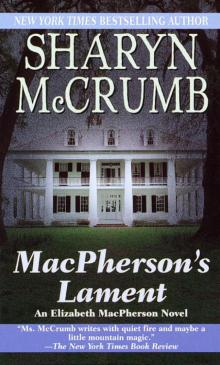 Elizabeth MacPherson 07 - MacPherson’s Lament
Elizabeth MacPherson 07 - MacPherson’s Lament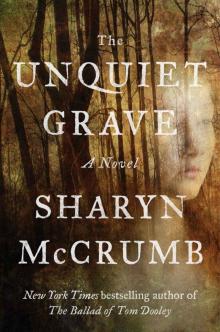 The Unquiet Grave: A Novel
The Unquiet Grave: A Novel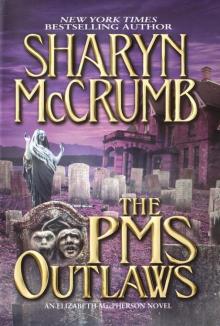 The PMS Outlaws: An Elizabeth MacPherson Novel
The PMS Outlaws: An Elizabeth MacPherson Novel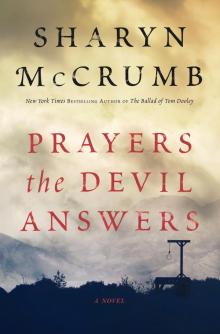 Prayers the Devil Answers
Prayers the Devil Answers Paying the Piper
Paying the Piper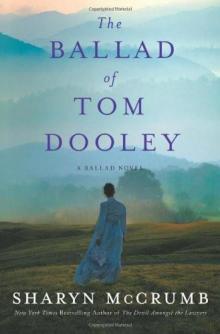 The Ballad of Tom Dooley: A Ballad Novel
The Ballad of Tom Dooley: A Ballad Novel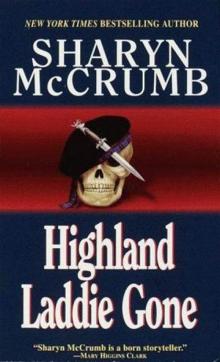 Highland Laddie Gone
Highland Laddie Gone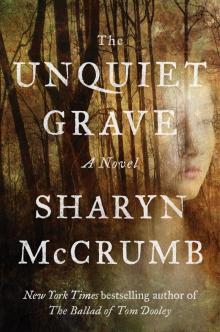 The Unquiet Grave
The Unquiet Grave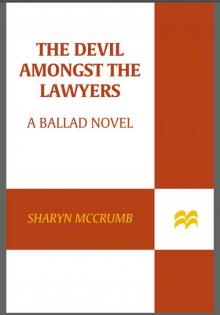 The Devil Amongst the Lawyers
The Devil Amongst the Lawyers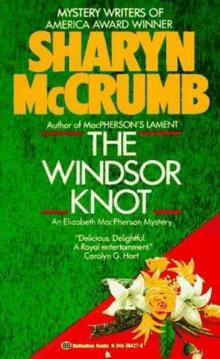 The Windsor Knot
The Windsor Knot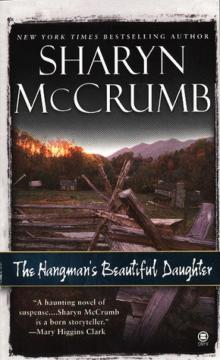 The Hangman's Beautiful Daughter
The Hangman's Beautiful Daughter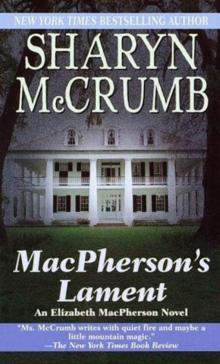 MacPherson's Lament
MacPherson's Lament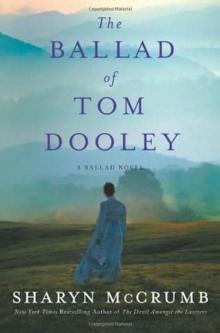 The Ballad of Tom Dooley
The Ballad of Tom Dooley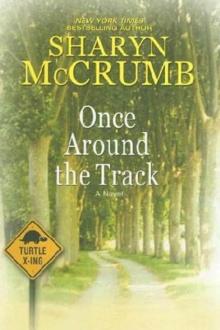 Once Around the Track
Once Around the Track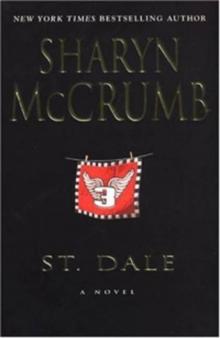 St. Dale
St. Dale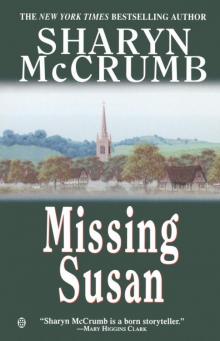 Elizabeth MacPherson 06 - Missing Susan
Elizabeth MacPherson 06 - Missing Susan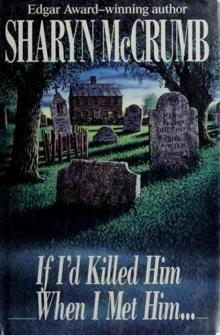 If I'd Killed Him When I Met Him…
If I'd Killed Him When I Met Him…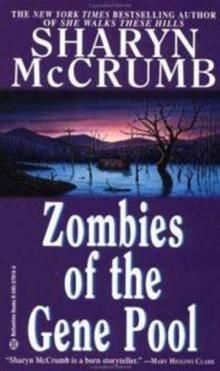 Zombies of the Gene Pool
Zombies of the Gene Pool Bimbos of the Death Sun
Bimbos of the Death Sun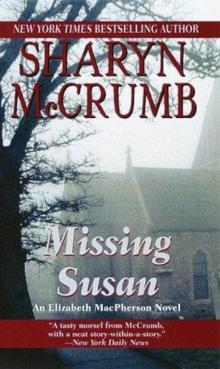 Missing Susan
Missing Susan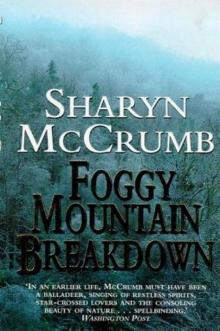 Foggy Mountain Breakdown and Other Stories
Foggy Mountain Breakdown and Other Stories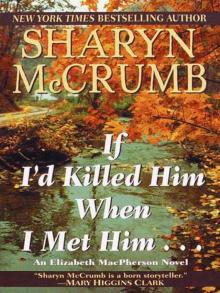 If I'd Killed Him When I Met Him
If I'd Killed Him When I Met Him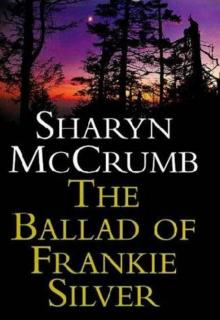 The Ballad of Frankie Silver
The Ballad of Frankie Silver Lovely In Her Bones
Lovely In Her Bones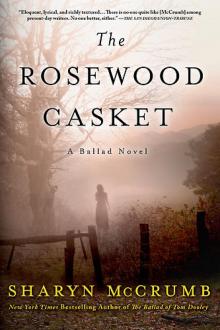 The Rosewood Casket
The Rosewood Casket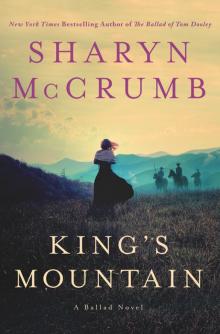 King's Mountain
King's Mountain